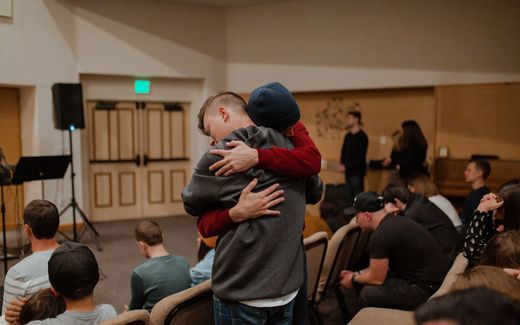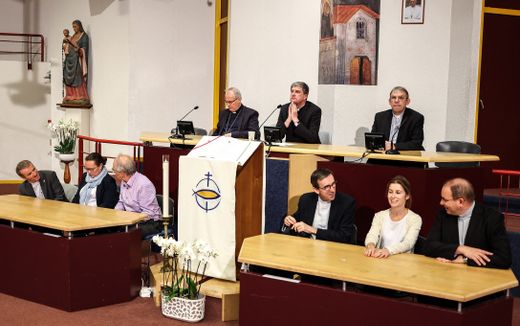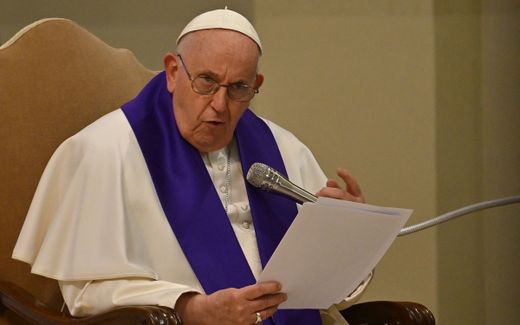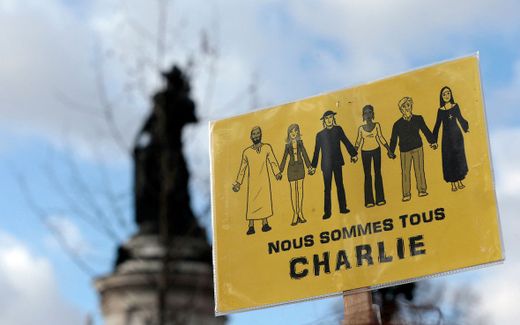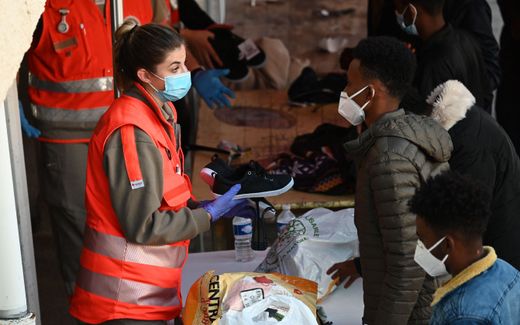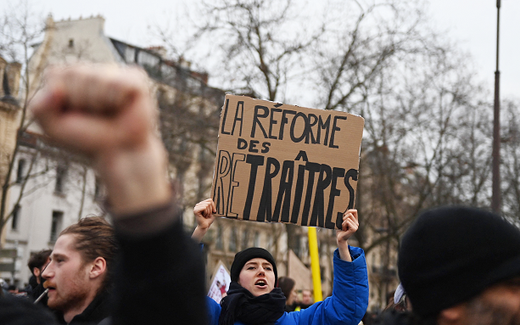Column from France: We wait too long if a pastor is accused of sexual abuse
21-04-2023
Christian Life
Marc Derœux, CNE.news
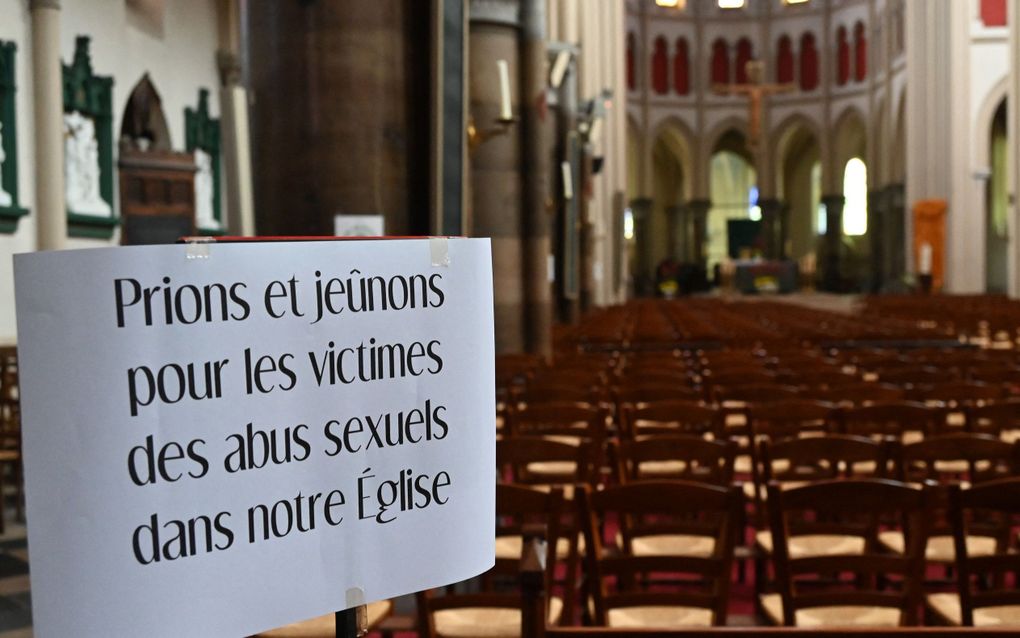
Asign reading 'Let us pray and fast for the victims of sexual abuse in our church', at Saint-Pierre church, in Calais, northern France. Photo AFP, Denis Charlet
Christian Life
Not a week goes by without a case of sexual abuse committed by a public figure or a person in authority making the headlines in France. The same happens in other European countries.
This is distressing in a society that preaches respect, benevolence and equality. The damage caused by these despicable acts unfortunately leaves indelible marks, and the feeling of impunity of perpetrators is experienced as a double punishment by the victims of these abuses. Fortunately, especially since the #MeToo movement, media coverage of all these cases committed in the artistic, political, sports and religious worlds has raised awareness and encouraged victims to speak out and file complaints.
Preacher
As president of the advisory and monitoring committee of Stop Abus, I am particularly attentive to cases of abuse of power and sexual abuse in evangelical Protestantism. Recently, I was interviewed by a French national weekly newspaper, La Vie, after a report appeared about accusations of abuse against a French preacher. Two women had filed a complaint against this preacher for sexual abuse.This is a public ministry led by a person who is well known in French-speaking evangelical circles and particularly in the blogosphere.
Pastoral ethics
The information relayed by the CNEF (National Council of Evangelicals of France), is not a condemnation. Instead, it should be seen as a warning to the members of this federation of churches and organizations concerning a person suspected of serious abuse. Basically, it is a warning to other Churches’ unions not to call on him until further notice. The facts of which he is accused, if they are proven, are not in keeping with pastoral ethics.
From a criminal point of view, although complaints have been lodged, the pastor is still presumed innocent. Admittedly, if the person had been less media-friendly, there might have been less communication at this stage. Indeed, legal or disciplinary action is being or has been taken against other preachers or pastors who have not been brought to the fore in this way. On the other hand, such communication also helps to free the voice of other potential victims.
The "institutional" awareness of this issue among evangelicals in France took place four or five years ago. The members of the CNEF gathered in plenary assembly and decided to set up a reflection group on pastoral deontology, with sexual abuse as one of its targets. I led this group, which wrote a booklet to remind us of the importance of leaders setting an example and of our communities being places where people are not afraid of sexual abusers.
We have also drawn up a charter of ethics to fight against sexual abuse, namely the “Charter of commitment to fight against sexual abuse in the Church”. All CNEF members voted for it. Because there must not be any impunity in our circles. We also recalled that we should not point the finger at the Catholic Church but rather put our own house in order. Last year, we set up an important mechanism supporting a listening service, called Stop Abus.
Blind eye
As is the case in most circles, our churches have sometimes turned a blind eye to certain cases, if they have not covered them up. I would even say that when faced with abuse, we always wait too long. This is what happens when we do not take care of the most vulnerable.
In the evangelical world, the different churches cultivate a great deal of autonomy. They do not depend on a hierarchy within a single institution, like the Roman Catholic Church. So when faced with a problem, when it comes to dealing with abuse, the question remains one of responsibility. You have to know at what level it is exercised. In a pyramidal organisation, decisions are taken at the top of the pyramid. In our system, the responsibility lies with the local churches or church unions.
If in the Catholic world phenomena such as the law of silence and clericalism are factors of abuse, the code of keeping silence, also called omerta, can of course exist everywhere. Knowing about the services we have set up to combat abuse can break the omerta.
The press release concerning the pastor implicated in the above-mentioned information is a way of reminding us that there is no immunity. It is a fortiori to tell the victims that we are not going to keep quiet about abuses, which are never to the glory of the One we want to serve.
Blind spot
As for "clericalism", it can also exist within Protestantism, even if everyone is secular here. A closed circle can arise, like a kind of cenacle or elite made up of initiates who want to hold power for themselves. This unfortunately happens in our circles, even if I think that this temptation is less and less widespread. Nor are we immune to gurus who claim to act in the Name of the Holy Spirit.
In the United States, several recent investigations have led the evangelical world –from some megachurches to the churches within the large federation of the Southern Baptist Convention– to take massive action against abusers, which has been surprising in its scale. Some may think that this is perhaps a 'blind spot' among evangelicals? But the blind spot is or has been in society at large. Thirty or forty years ago, such abuses obviously existed, but they were dealt with internally. I think there is an awareness in society as a whole, which has been particularly facilitated by the #MeToo movement.

Marc Derœux (1965) is a French pastor, connected to the Baptist Federation (FEEBF).
At the moment, he serves as the director of the language school Center des Cèdres in Massy (near Paris).
Before, he served as a minister in Lille, Lyon and Valence. He is involved in the National Council of Evangelicals in France (CNEF).
Derœux is married to the schoolteacher Catherine, with whom he has three children.
Related Articles

